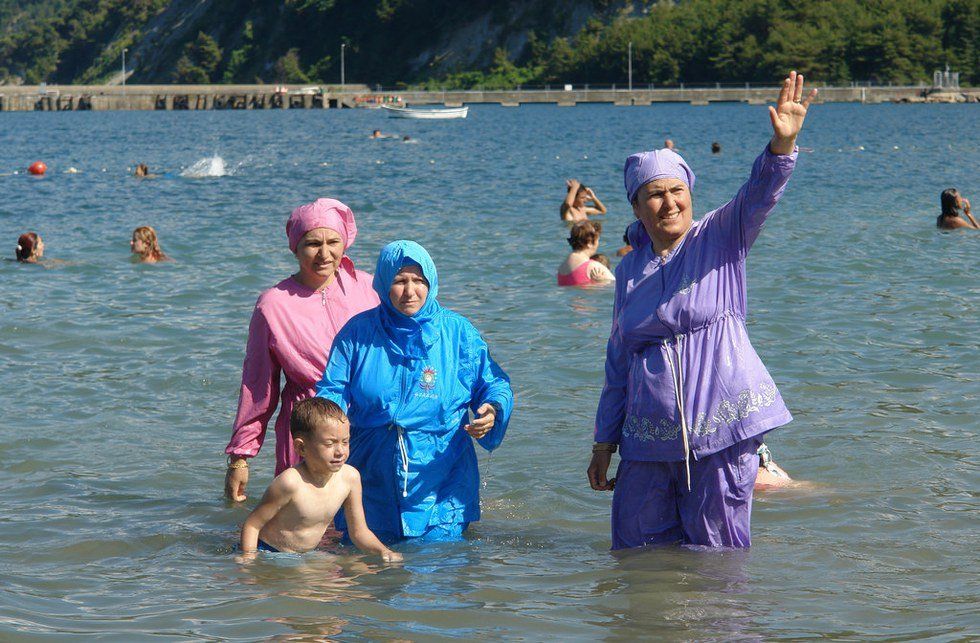For years, the church has grappled with the encroaching tides of secularism as members seek to redefine a Christianity that coexists with their own modern lifestyle. Out of these struggles springs the hot-button issue of modesty, particularly as it pertains to women. It seems that we are constantly involved in ongoing debates about how low-cut tops and yoga pants are the downfall of civilization. Yet, within our relatively loosely defined standards of modesty, we tend to band together to condemn traditional Islamic attire as oppressive. In light of Germany's partial ban on the burqa and certain French towns' crackdown on the "burkini," it's time for we Christians to get serious about our perceptions of modesty.
In the sensational Christian film, "God's Not Dead," there's a scene in which a college student apologetically tells her Muslim classmate, who is reluctantly donning her hijab, "I wish you didn't have to do that." Not only was she reinforcing the trope of the Oppressed Muslim Woman™, she completely overlooked that Christian women who don't cover their heads dishonor themselves. Only men, who are designed in the image and glory of God, do not have to cover their heads.
Christian women everywhere are probably flexing their spiritual fists at this point, but I'm only referring to Paul's own letters to the Corinthian church regarding the proper conduct of reverence. At this point, people will say to me, "That's just it. Paul was talking about the people of his time." But wasn't Paul also the very one who urged women to dress with "modesty and propriety," a particular command that still lives on in Christendom with a renewed vigor? As one of my friends pointed out, "Do people think that all the head coverings in medieval art were for fashion?"
Unless they're Amish, most Christian women, including myself, do not cover their heads anymore. However, they collectively held themselves to the notion that dressing modestly would a) prevent young men from conceding to temptation, b) lock down future husbands by "leaving more to the imagination," and, most importantly, c) demonstrate to others that their self-worth comes from more than the clothes they wear. For some women, this may mean tastefully enjoying the aesthetic of bikinis, crop tops and short shorts. For other women, this may mean wearing long skirts and one-piece bathing suits. The important thing is that women have a sense of agency in deciding what is appropriate for them.
After all, as Kathleen Parker of the Washington Post notes, Westerners are "in no position to be smug. Less than 100 years ago in Washington, modesty police literally measured women’s bathing suit skirts to ensure adherence to the legal standard of only six inches above the knee."
Because of this, we should acknowledge the agency of our Muslim friends. As agents, we have the right to speak out against the institutionalized marginalization of women, be it under the veil of Islam, Christianity or secular legislation. I personally know plenty of Muslim women who, like us, have made their own conscious decisions about their modesty. Where a woman finds empowerment in her personal life, no external forces should take that away from her for the sake of assimilation.





















